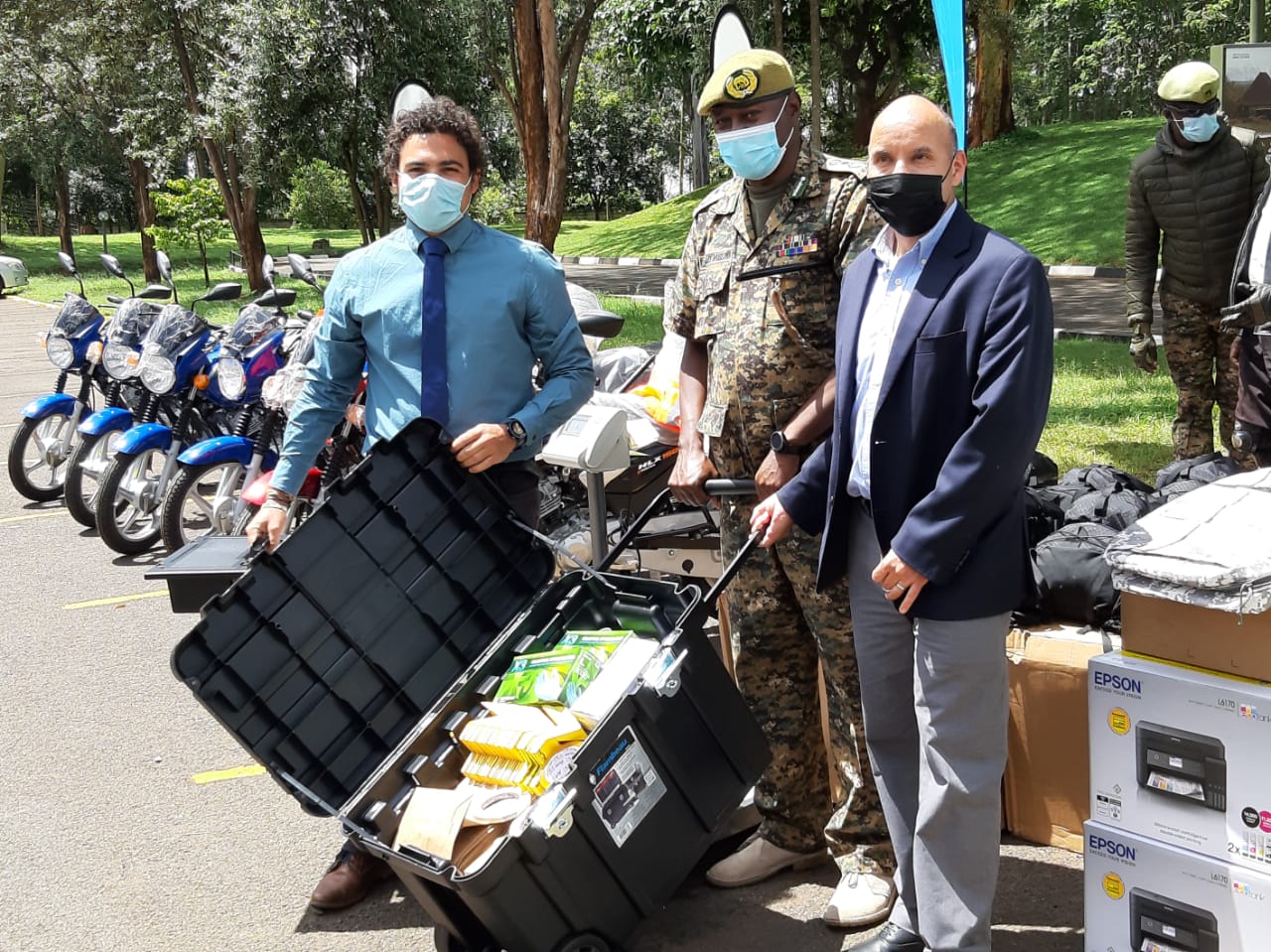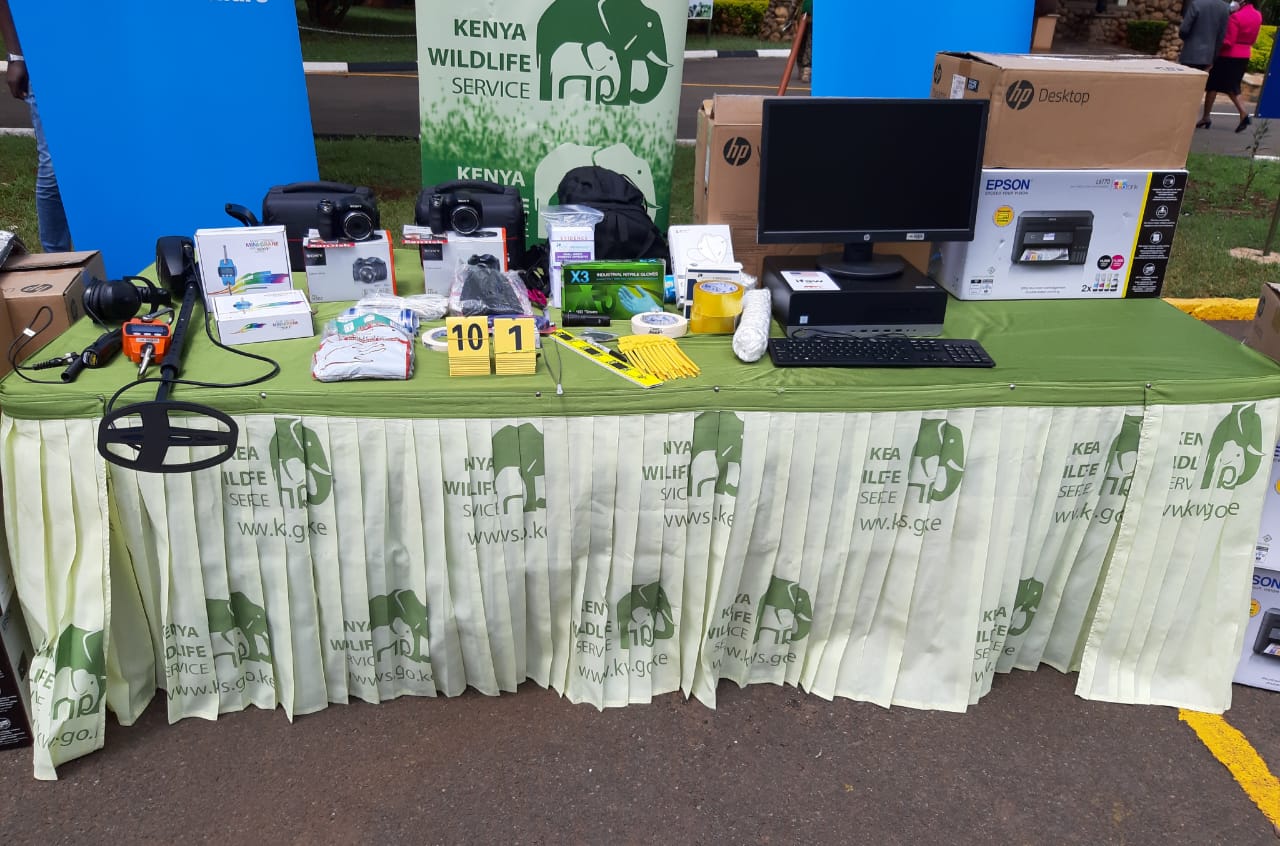How CSI Kenya is helping boost efforts to end wildlife crime
Metal detectors, GPS units and cameras are helping to combat wildlife criminal syndicates

Your support helps us to tell the story
From reproductive rights to climate change to Big Tech, The Independent is on the ground when the story is developing. Whether it's investigating the financials of Elon Musk's pro-Trump PAC or producing our latest documentary, 'The A Word', which shines a light on the American women fighting for reproductive rights, we know how important it is to parse out the facts from the messaging.
At such a critical moment in US history, we need reporters on the ground. Your donation allows us to keep sending journalists to speak to both sides of the story.
The Independent is trusted by Americans across the entire political spectrum. And unlike many other quality news outlets, we choose not to lock Americans out of our reporting and analysis with paywalls. We believe quality journalism should be available to everyone, paid for by those who can afford it.
Your support makes all the difference.The illegal trade of wildlife - estimated to be worth $23 billion - poses a major security challenge to law enforcement across the globe due to its close links with other transnational organised criminal activities, such as drugs, arms and human trafficking.
Efforts to tackle wildlife crime in Kenya were boosted last week when conservation organisation Space for Giants, in partnership with the United Nations Office on Drugs and Crime [UNODC], delivered vital specialised equipment to the Kenya Wildlife Service, to enhance wildlife crime scene management.
Brigadier John Waweru, Director General of KWS, told The Independent “although it is popularly believed that cases are won or lost in court, most cases are actually won or lost at the crime scene, depending on how [it] is managed.”
The kits delivered included cameras, metal detectors, GPS units and fingerprint lifting kits, all essential to enable the KWS investigations department to successfully manage evidence at the scene of a wildlife crime, ensuring chain of custody is followed, which can later be presented in court.
Successful crime scene management is a critical first step to later achieving a robust prosecution in court; one that leads to a meaningful conviction which acts as a deterrent for other criminals. Waweru adds “a well-managed crime scene is likely to yield evidence that can lead to successful prosecutions”.
“Over the years, KWS has relied on the assistance of the police to process wildlife crime scenes. However the police are not always available due to the remote locations where some of these crimes occur.
“KWS will equip all the existing investigation units with scene of crime equipment, as well as open additional units.”

Maurice Schutgens, Conservation Programmes Manager at Space for Giants, says “for the law to act as a suitable deterrent, well investigated cases need to be brought to court for prosecution.
“The equipment donated to the KWS will provide highly trained officers with the necessary tools to do just that. Space for Giants is proud to work in partnership with the KWS and UNODC to continue building capacity to tackle the illegal wildlife trade.”
Javier Montano Duran of the UNODC says “through our partnership with KWS 62 gazetted officers have received advanced crime scene management training, 16 amongst them have been trained as trainers, who in turn have delivered training to more than 150 first responders.”
After one of the most challenging years in recent times, the KWS remains staunchly committed to fighting poaching and safeguarding wildlife, and Waweru is far from complacent.
The KWS, despite the crippling impacts of Covid-19 on the tourism sector, have demonstrated their commitment to wildlife conservation and their efforts have yielded impressive results.
Last year, for the first time since 1999, Kenya did not lose a single rhino to poaching. These statistics, coupled with a 91% conviction rate for wildlife crime in the country, show how it is possible to bring wildlife crime under control through a holistic strategy.
Waweru added he “welcomes the great work being done” by The Independent‘s Stop The Illegal Wildlife Trade campaign, and that his organisation feels “privileged” to work with Space for Giants and the UNODC.
By working with governments to bolster the capacity of judicial systems to consistently enforce wildlife justice, Space for Giants is helping ensure meaningful convictions and a reduction in wildlife crime. This is made possible through the support of our government partners and funders such as UNODC and the U.S. Department of State, Bureau of International Narcotics and Law Enforcement Affairs.
Help is needed to protect African wildlife and the habitats they depend on for survival. Donate to support our Stop The Illegal Wildlife campaign HERE
Join our commenting forum
Join thought-provoking conversations, follow other Independent readers and see their replies
Comments